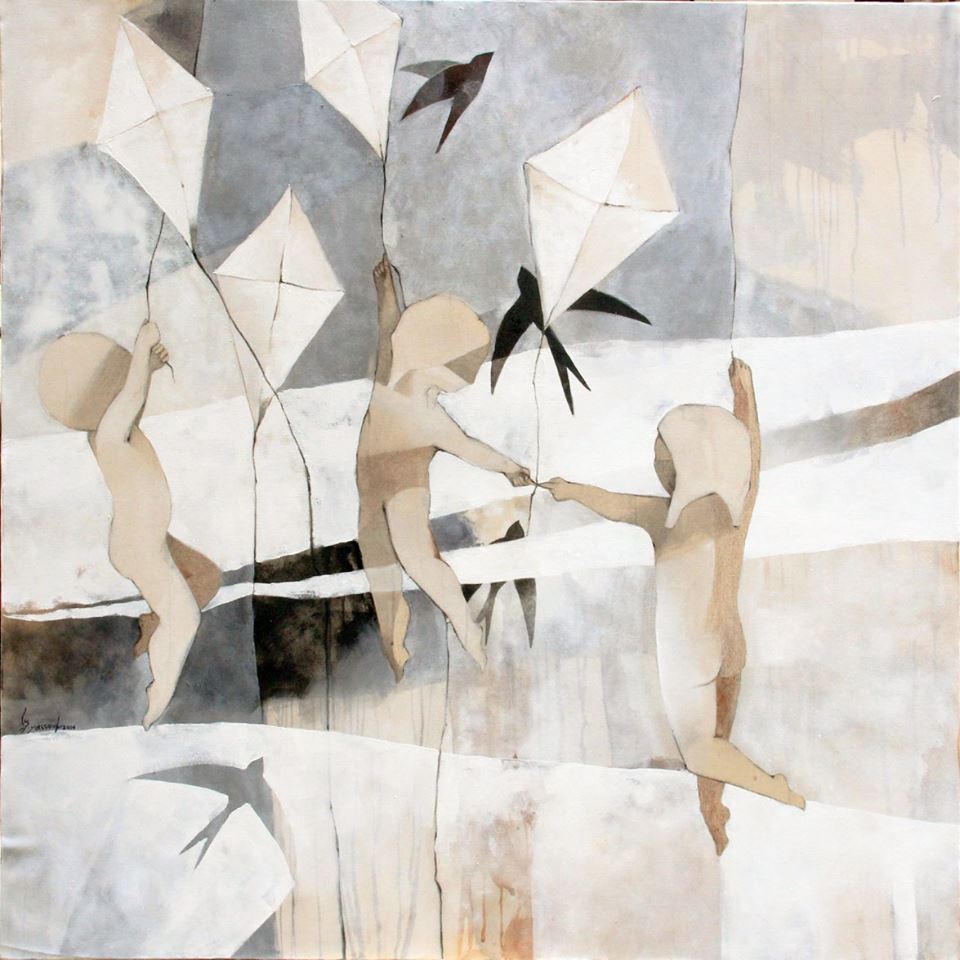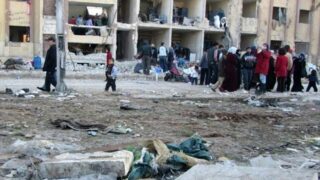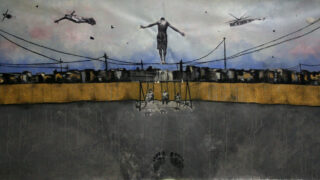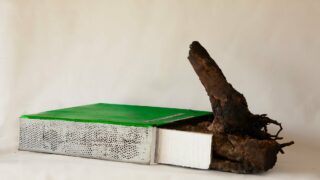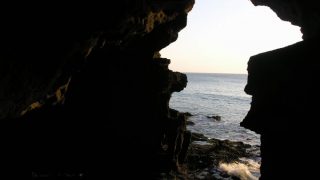I watch their faces, gone pale with terror, as I stand before them helpless and waiting for the roof to collapse on our heads, waiting for us all to die here together under the rubble.
The clamor of artillery shells and bullets has suddenly assaulted our classroom. The children are trembling now, standing up, swaying and staggering in the familiar ritual of fear: shouting and wailing in terror. Then the school principal comes in. “It’s nothing,” he screams. “Keep on with the lesson. The situation is under control.”
He turns on me, accusation fuming in his eyes. “Professor, maintain your self-control in the classroom. This is just a failed attempt at infiltrating the secured zones.” He walks out for a moment, only to roar back in, shouting even louder this time. “Finish the lesson! The traitors have been crushed. Don’t waste another minute.”
To be a teacher here in Aleppo – in one of the schools that are still standing—is hardly a task for an educator anymore.
The conditions in which the students live have changed so much; and more than the conditions they live in, it is their ways of thinking that have drastically changed.
These days, they besiege me perpetually with questions that I cannot really answer. As students, their needs have shifted; they demand explanations for words and expressions that have no place in school textbooks. In spite of our common catastrophe, I do not find the courage to blast the principal with all of the questions that have been ricocheting around in my own mind.
How can you want me to finish today’s lesson when the country just keeps sliding further down into devastation and ruin?
More than five thousand schools have closed their doors.
More than a million Syrian schoolchildren are refugees, strewn out of their country–and you are talking to me about the need for “projects for the psychological and social support of our students,” and “intensive summer sessions to rebuild student skills and knowledge?”
With what reserves of strength am I expected to finish this year’s school curriculum, when day after day the compass of fire and violence get wider and wider, burning alike what is still standing and what has already been demolished, devouring the innocent and the evil alike?
There are no emblems of a future left to give them.
And the children are freighted with questions that I must spend my time dodging, because it is not appropriate to talk about politics inside the classroom.
-Why is this happening to us?
-Why did Hassan lose his right leg?
-Why have our parks turned into graveyards?
-Why were all of the old souks demolished?
Every morning I count up the absentees. Behind each absence is the story of a brand-new orphan. The story of a brand-new injury by shrapnel. The story of a new departure into exile. The story of another child taking up a weapon and joining one of the armed groups.
They still come and tell me the latest events they have seen with their own eyes. They tell me about the latest posts they have written on the Facebook pages of those who are ‘for,’ or the Facebook pages of those who are ‘against.’ The stories they tell me are often reflections of the bottomless rifts that have opened up between them, the kind of rifts that I find myself doubting that they will ever be able to bridge.
And on some days the kids come in and they can somehow tell that today I will just not be capable of keeping the classroom ‘under control.’
And instantly on those days there is an eruption of chaos right under my nose. They fight and they scream at each other. They hurl paper airplanes at each other. They pull plastic swords and toy guns from their backpacks. Instantly, they are divided into several fighting katibas, each unit with its own military commander; the chairs are upended into barricades while they joust, and I hear them threatening to storm the principal’s office and “liberate” it.
The principal is right, I need to “keep control of my class.”
Outside, another rocket falls, its shrapnel crashing into the school’s courtyard and bringing with it the principal’s voice, shouting even louder: “Finish the lesson on the first floor! Don’t waste another minute.”
I remind him that for three years now we have never gone up to the second or third floor for reasons of safety. “Aren’t those your default instructions, Mr. Principal?”
The ambulance is in the school’s courtyard, and in front of it the principal denies to students and all that there were any injuries or deaths. He insists that the only damage was to the building and the furniture. But what exactly was it that the ambulance carried away then? What was inside those big plastic bags? Where did those red stains sprinkled around the courtyard come from? No one answers. It is as if there were anyway nothing more normal than the sight of death, scattered body parts, shrapnel injuries and stray bullets.
I return home thankful to whatever divine protection prevented any of the children in the morning session getting hurt, even if we were in the end unable to finish our scheduled lessons.
But my mind is still preoccupied with worries for the children who will be coming in for the afternoon session. Since July of 2012, the armed clashes in Aleppo have never really let up.
And what of all the school kids further afield, in Aden, in Sanaa, or in the Sinai, or in Benghazi or in Mosul? The list is endless, all these cities and villages that are right now being devoured by raging battles.
The voice of the principal has followed me here, in the corners of my mind at least: “Better to see the stones destroyed than the people killed.” I try to convince myself of this while attempting to get my thoughts in order. What is the value of the old souks, with their demolished alleys? The alley of the spices, the alley of the jewelers, the alley of cotton fabrics, the alley of the abayas, of silk, of copper, the soap alley? Of all the old coffee shops that used to be there in front of the citadel? What would be the use of them anyway without a single human left to breathe?
And if it is all gone now, isn’t it Aleppo’s archaeological memory that has turned into dust and wilderness, the memory of the commercial and industrial prosperity of the most powerful kingdom of the Orient, founded four thousand years ago?
But the principal says “More important are the people. All of the stones will be rebuilt and restored.” I try to get over the principal’s unbearable rationalizations, his happy dreams of cleaning up the rubble, of the concrete reconstruction of our city and the abstract plans to restore and mend our humanity.
And so to the beat of rockets falling on East Aleppo, and on West Aleppo, I begin preparing tomorrow’s lessons, following a school curriculum filled with instructions about having the students write essays about the fall of rain and the twittering of birds in spring and of course those wonderful summertime trips down to the seaside.
We must follow the curriculum of the national education office. But in my case, I have gone beyond all of their plans and instructions, beyond the protests of the principal, because the kids are making fun of what is in their school textbooks.
And as well because I don’t want them hurling their paper airplanes at each other again, and I don’t want them wielding their plastic swords and toy guns in my face or anyone else’s face.
We begin [the school year]by working together to choose other topics to discuss. Topics that are fit for classrooms that have been shaken by the war, by the density of the children packed into them now, by the obligation to have both a morning and an afternoon shift.
We try to find topics that will be alternatives to things that have vanished from our curriculums: sports, music, art. We try to find alternatives to school field trips that we once took, to Aleppo’s old citadel, to its museums, to its industrial factories.
The children’s conversations have changed greatly. They are not scared of the principal anymore. They can no longer stand trying to learn the ancient poetry styles, the rules of the ancient grammar.
They have become expert at writing harrowing stories. Stories that tell what they have seen and heard happening to their own city, what they have heard is happening to the cities of Egypt, of Yemen, of Iraq, of Libya. Some of them like to write about their homesickness and nostalgia for the neighborhoods they had to leave, for the friends and neighbors whose fate they know nothing about now. Some like to remember the girl who lived next door, remember the passion of teenage love letters.
The texts they write are filled with new words and new expressions, none of them present in the Arabic dictionaries, either ancient or modern. Words and expressions that should have no part of their years, that burn with the details of their brutal days.
-“Sniper, DAESH, Al Nusra Front, Homemade Rocket, Abu Shakhra Rocket [roaring rocket], Hell-cannon, Political Solution, Military Victory, Hotspots, Safe Zones, Barrel Bombs, Explosive Vest, Amir of the Group, Arab and Foreign Jihadis…”
New words and new expressions that compel teachers to a detailed knowledge of each development in the civil wars that are tearing through the entire region, transforming us into military experts who know every detail of the shifting demarcation lines on the maps that divide neighborhood and city and village.
The language of the war that is raging over us has sifted into every school and every classroom. It is settling even into the principal’s chair; it is our children’s brand-new dictionary, the glossary of an unspeakable brutality.
Translated by: International Boulevard

